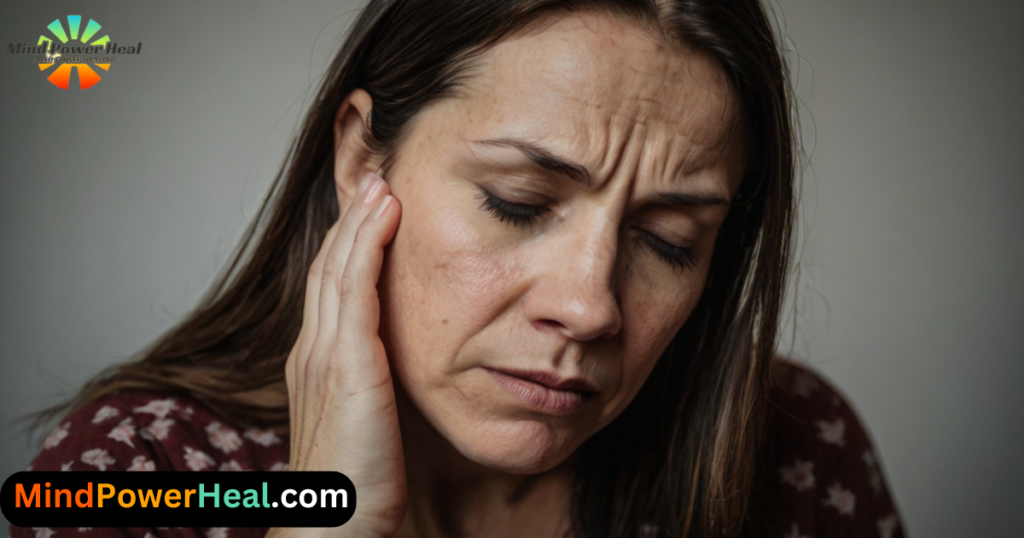Understanding how long can anxiety symptoms last is crucial for those experiencing anxiety and seeking ways to manage it effectively. The duration of anxiety symptoms can vary significantly, influenced by factors such as the type of anxiety disorder, individual differences, and coping mechanisms. This guide explores the typical duration of anxiety symptoms and offers strategies to manage them.

How Long Can Anxiety Symptoms Last?
Before knowing of Anxiety lasting duration. You must understand the kinds of Anxiety and their symptoms as follow:
Acute Anxiety Symptoms
Acute Anxiety Symptoms are typically short-lived and can last from a few minutes to a few hours. These symptoms often occur in response to specific stressors or situations, such as public speaking or an upcoming exam. Acute anxiety symptoms include rapid heartbeat, sweating, trembling, shortness of breath, and a sense of impending doom. These symptoms usually subside once the stressor is removed or the situation is resolved.
Chronic Anxiety Symptoms
Chronic Anxiety Symptoms can persist for weeks, months, or even years. Conditions such as generalized anxiety disorder (GAD), social anxiety disorder, and panic disorder often involve long-term anxiety symptoms. These symptoms can include persistent worry, muscle tension, restlessness, difficulty concentrating, and sleep disturbances. Chronic anxiety can significantly impact daily life and overall well-being.
How long can anxiety symptoms last? Factors Influencing the Duration of Anxiety Symptoms
The duration of anxiety symptoms can be influenced by several factors, including:
Severity of the Anxiety:
More severe anxiety symptoms tend to last longer and require more intensive management.
Type of Anxiety Disorder:
Different anxiety disorders have varying timelines. For example, panic attacks are brief but intense, while generalized anxiety disorder involves ongoing symptoms.
Individual Differences:
Personal factors such as genetics, overall health, and coping mechanisms play a significant role in how long anxiety symptoms last.
Triggers:
Specific triggers, such as stressful events or environments, can prolong anxiety symptoms.
How long can anxiety symptoms last? Managing and Reducing Anxiety Symptoms

Deep Breathing Exercises
One effective way to manage and reduce anxiety symptoms is through deep breathing exercises. Slow, deep breaths can calm the nervous system, reducing symptoms like rapid heartbeat and shortness of breath. Practice inhaling deeply through your nose, holding for a few seconds, and exhaling slowly through your mouth.
Progressive Muscle Relaxation
Progressive muscle relaxation (PMR) involves tensing and then slowly releasing different muscle groups in the body. This technique can help reduce muscle tension and promote relaxation, alleviating anxiety symptoms.
Regular Exercise
Engaging in regular physical exercise is a proven way to reduce anxiety symptoms. Exercise releases endorphins, natural mood boosters that can help reduce muscle tension, improve sleep, and lower stress levels.
Adequate Sleep
Getting enough sleep is crucial in managing anxiety. Lack of sleep can exacerbate anxiety symptoms, creating a vicious cycle. Establish a regular sleep routine by going to bed and waking up at the same time each day, creating a relaxing bedtime routine, and ensuring your sleeping environment is comfortable.

Healthy Diet
A balanced diet can play a significant role in reducing anxiety symptoms. Consuming a variety of fruits, vegetables, whole grains, and lean proteins can provide the necessary nutrients to support your overall health and well-being. Avoid excessive caffeine and sugar, as these can trigger or worsen anxiety symptoms.
Mind Power Healing for Anxiety Symptoms
Mind power healing is a holistic approach that can effectively address the duration of anxiety symptoms. This method focuses on harnessing the power of the mind to promote relaxation and reduce stress. How long can anxiety symptoms last depends on techniques such as mindfulness meditation, visualization, and positive affirmations can be particularly beneficial. Mindfulness meditation involves staying present in the moment and observing your thoughts without judgment, reducing anxiety and its physical manifestations. Visualization techniques involve imagining peaceful and calming scenarios, helping relax the body and reduce symptoms like muscle tension and headaches. Positive affirmations can replace negative thought patterns with empowering beliefs, fostering a sense of control and calmness. By incorporating mind power healing into your daily routine, you can develop resilience and effectively manage anxiety symptoms.
Final Remarks:
In conclusion, understanding how long can anxiety symptoms last is essential for managing this condition effectively. By recognizing the factors that influence the duration of anxiety symptoms and adopting strategies such as deep breathing, progressive muscle relaxation, regular exercise, adequate sleep, and a healthy diet, you can manage and reduce these symptoms effectively. Mind power healing offers additional techniques to promote relaxation and reduce stress, helping you achieve long-term relief from anxiety symptoms.

Google-Suggested Questions and Answers
Q1: How long can anxiety symptoms last?
A1: The duration of anxiety symptoms can vary from a few minutes to several years, depending on the severity of the anxiety and the type of anxiety disorder. Acute anxiety symptoms may last for minutes to hours, while chronic anxiety symptoms can persist for weeks, months, or longer.
Q2: Can anxiety symptoms last all day?
A2: Yes, anxiety symptoms can last all day, especially in cases of chronic anxiety disorders like generalized anxiety disorder (GAD). Persistent worry, muscle tension, and restlessness can make it feel like anxiety is present throughout the day.
Q3: Why do anxiety symptoms last so long?
A3: Anxiety symptoms can last long due to ongoing stressors, ineffective coping mechanisms, and the nature of chronic anxiety disorders. Factors such as genetics, overall health, and environmental triggers can also contribute to the prolonged duration of anxiety symptoms.
Q4: How can I reduce the duration of anxiety symptoms?
A4: To reduce the duration of anxiety symptoms, practice deep breathing exercises, progressive muscle relaxation, regular physical exercise, maintain a healthy diet, ensure adequate sleep, and incorporate mind power healing techniques such as mindfulness meditation and visualization.
Q5: Can chronic anxiety be cured?
A5: While chronic anxiety may not always be completely cured, it can be effectively managed with the right combination of therapies, lifestyle changes, and coping strategies. Techniques like cognitive-behavioral therapy (CBT), medication, and mind power healing can significantly reduce symptoms and improve quality of life.



